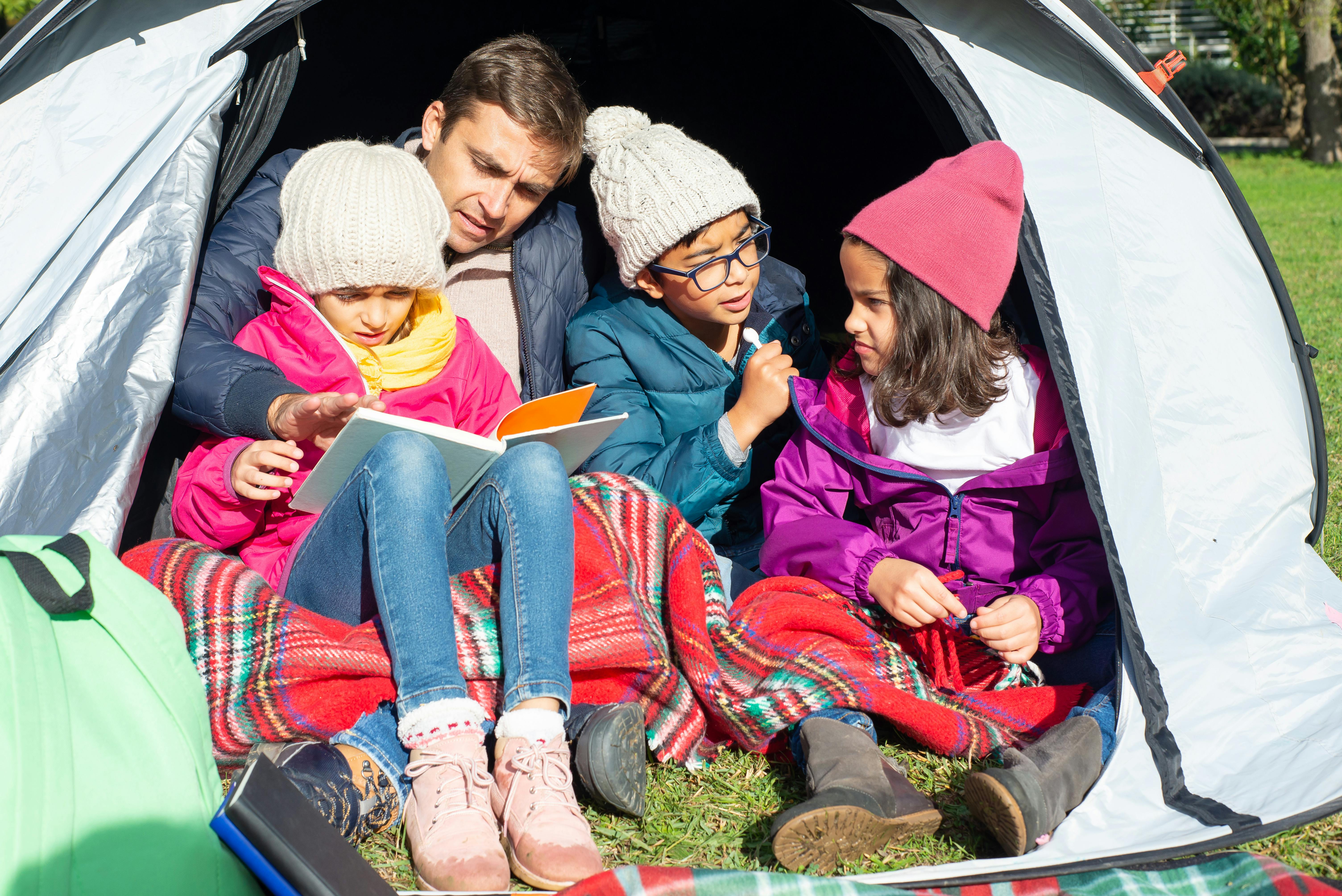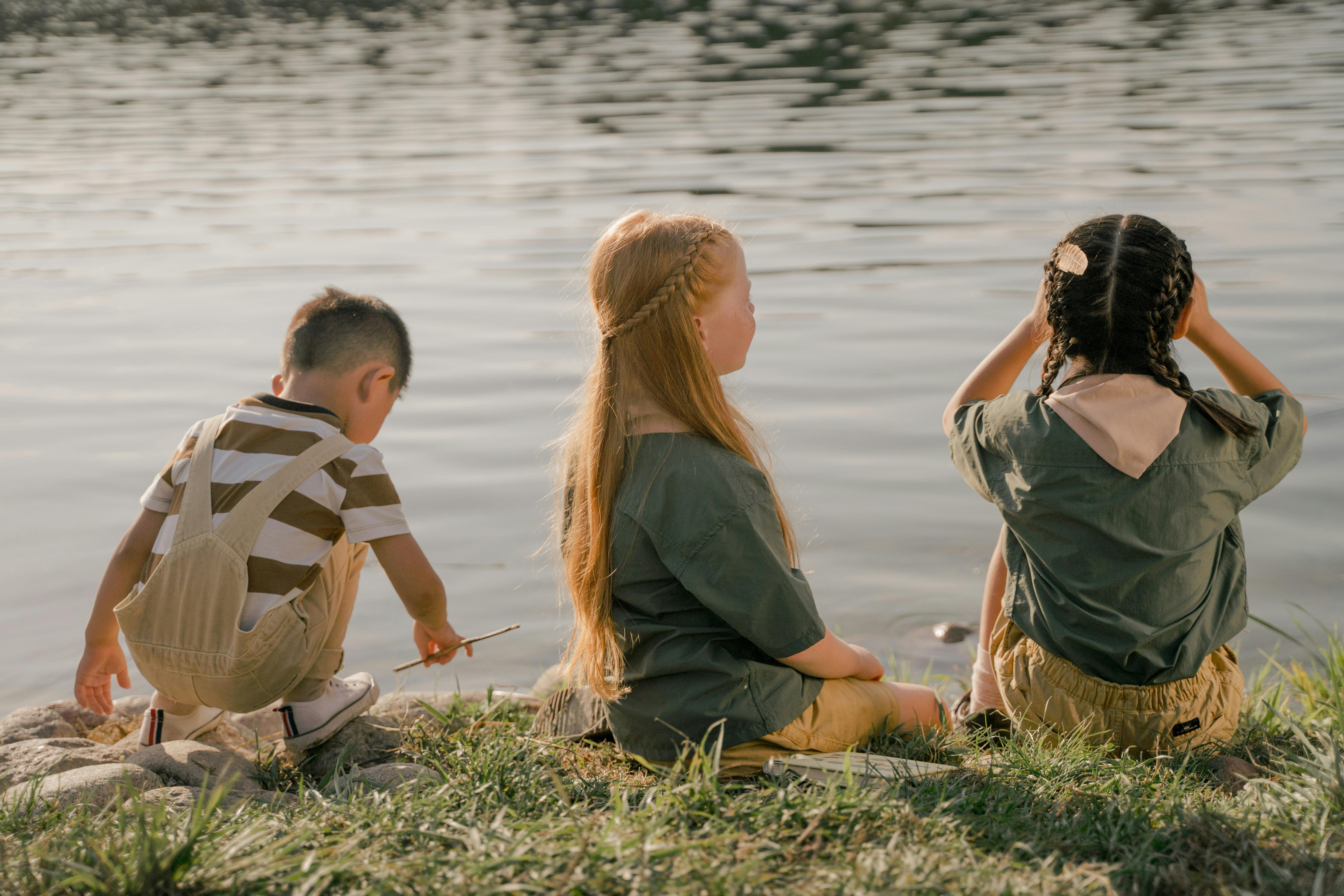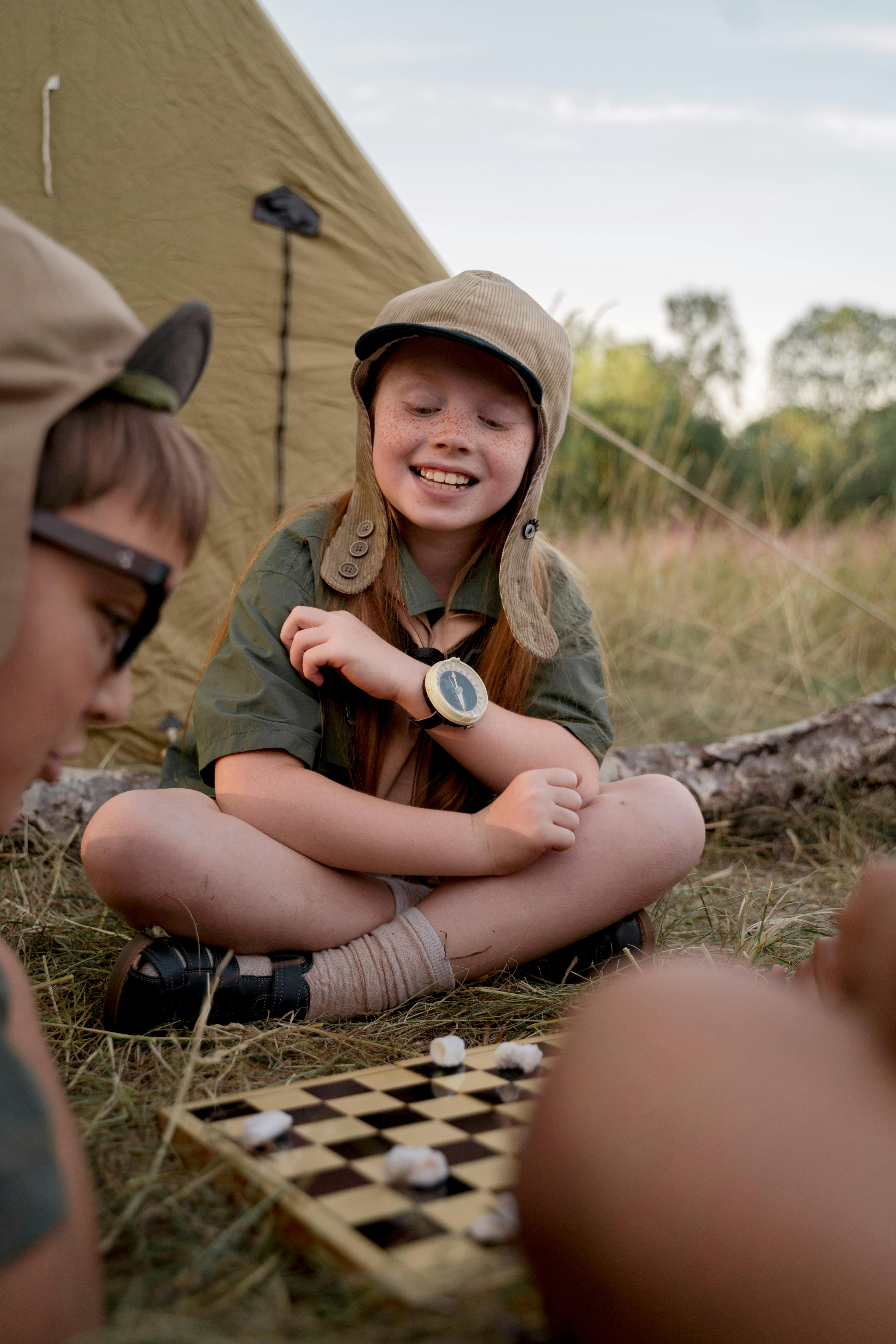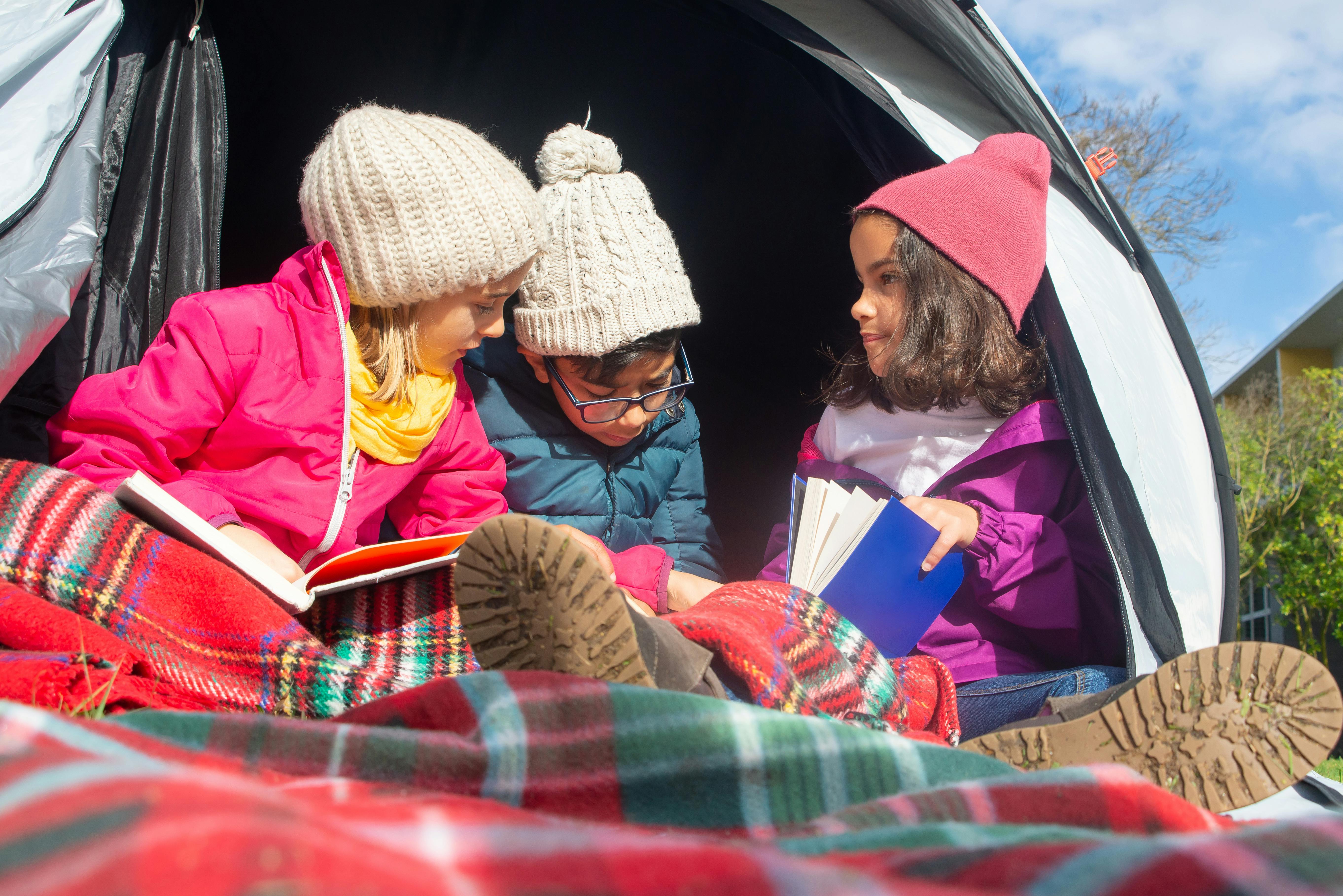How to Take A Camping Vacation During the School Year | School Time Camping Tips for Kids
Are you looking to break away from the routine and embark on a family camping adventure, even when school is in session? Taking a camping vacation during the school year can be an enriching experience for kids and adults alike. Not only does it provide a change of scenery, but it also offers unique educational opportunities. Let’s dive into the tips and tricks to make your school-time camping trip a seamless and memorable experience!
Ready to Combine Adventure with Learning?
Imagine trading textbooks for trail maps and classrooms for campsites, even if only for a few days! A camping vacation during the school year doesn’t just offer a break from the daily grind; it presents a fantastic opportunity for your kids to learn and grow in nature. From honing survival skills to observing wildlife up close, the lessons they learn outdoors can be as impactful as those in the classroom.
1. Plan Ahead for a Smooth Adventure
Check the School Calendar
Before you plan your camping trip, check the school calendar for any important dates such as exams, projects, or school events. Opt for weekends, long weekends, or school holidays to minimize disruption to your child’s education.
Inform Teachers
Communicate with your child’s teachers about the upcoming trip. Many teachers are supportive of educational travel experiences and may provide assignments or materials to ensure your child doesn’t fall behind. Some may even offer ideas on how to integrate the trip with current studies.

2. Choose an Educational Destination
National Parks and Historical Sites
Select a campsite near national parks, historical sites, or nature reserves. These locations often offer educational programs and tours that can enhance your child’s learning experience. For instance, visiting a national park can provide insights into ecology, geology, and conservation efforts.
Science and Nature Centers
Look for campsites close to science or nature centers. These centers often have hands-on exhibits, workshops, and guided tours that are both fun and informative. They can help children connect what they learn in school to real-world applications.
3. Pack Wisely for School and Adventure
Educational Supplies
Bring along necessary school supplies such as books, notebooks, and a tablet or laptop if needed. Ensure that there’s a designated time each day for schoolwork. Creating a balance between learning and adventure is key to a successful trip.
Camping Essentials
Don’t forget the camping essentials! Pack your tent, sleeping bags, cooking gear, and appropriate clothing. Consider the weather and terrain of your destination. Having a comfortable and well-equipped campsite will make it easier to focus on both fun and learning.

4. Integrate Learning with Outdoor Activities
Nature-Based Education
Use the natural surroundings to teach various subjects. For example, a hike can turn into a biology lesson as you identify plants and animals. A night under the stars can be an astronomy class. Encourage your kids to ask questions and explore their curiosity.
Journaling and Creative Writing
Encourage your kids to keep a journal of their camping experiences. They can write about the wildlife they see, the hikes they take, or the campfire stories they hear. This not only improves their writing skills but also helps them reflect on their experiences.
5. Make Learning Fun with Games and Challenges
Educational Games
Bring along educational games that are easy to play outdoors. Scavenger hunts, nature bingo, or identifying constellations can make learning fun and interactive. These games can be tailored to fit various age groups and learning levels.
Physical Challenges
Incorporate physical activities such as hiking, swimming, or setting up the campsite. These activities teach important skills like teamwork, problem-solving, and perseverance. Plus, they help burn off energy and keep kids engaged.

6. Utilize Technology Wisely
Educational Apps
Use educational apps and resources to supplement your child’s learning. There are numerous apps available that cover a wide range of subjects, from math and science to history and geography. These can be a valuable tool when you’re away from traditional learning environments.
Offline Resources
While technology can be beneficial, don’t rely on it entirely. Encourage your kids to use books, maps, and guides to learn about their surroundings. This can help them develop research skills and appreciate the value of offline resources.
7. Create a Flexible Schedule
Balance Work and Play
Create a flexible schedule that balances schoolwork and recreational activities. Set aside specific times for studying and outdoor adventures. Flexibility allows for spontaneous learning opportunities and ensures that the trip remains enjoyable for everyone.
Daily Learning Goals
Set daily learning goals to keep your child on track. These goals can be as simple as completing a math worksheet, reading a chapter in a book, or writing a journal entry. Achieving these goals provides a sense of accomplishment and keeps the learning process continuous.
8. Encourage Social Interaction
Meet Other Campers
Encourage your kids to interact with other campers. This can help them develop social skills and make new friends. Many campgrounds have communal areas or organized activities where families can meet and socialize.
Group Activities
Participate in group activities offered by the campsite, such as guided hikes, educational talks, or campfire programs. These activities can be both fun and educational, providing opportunities for your kids to learn and interact with others.

9. Embrace the Unexpected
Learn from Nature
Nature is unpredictable, and that’s part of its charm. Embrace the unexpected moments and use them as learning opportunities. A sudden rainstorm can turn into a lesson on weather patterns, while a chance encounter with wildlife can spark interest in animal behavior.
Problem-Solving Skills
Camping often presents challenges that require quick thinking and problem-solving. Whether it’s setting up a tent in the wind or finding your way back to camp, these experiences teach valuable life skills that go beyond the classroom.
10. Reflect on the Experience
Post-Trip Discussions
After returning home, have a family discussion about the camping trip. Talk about what everyone learned, what they enjoyed, and what they found challenging. This reflection can help reinforce the lessons learned and make future trips even better.
Sharing Memories
Encourage your kids to share their experiences with friends, classmates, or teachers. They can create a presentation, write a report, or make a scrapbook. Sharing their adventure can help solidify their learning and inspire others to explore the outdoors.
An Unforgettable Learning Adventure
Taking a camping vacation during the school year is a unique way to combine education with adventure. With careful planning, flexibility, and a sense of curiosity, you can create an enriching experience that your kids will remember for a lifetime. From exploring nature to learning new skills, the opportunities for growth and discovery are endless. So, pack your bags, hit the road, and get ready for an unforgettable journey into the great outdoors!
